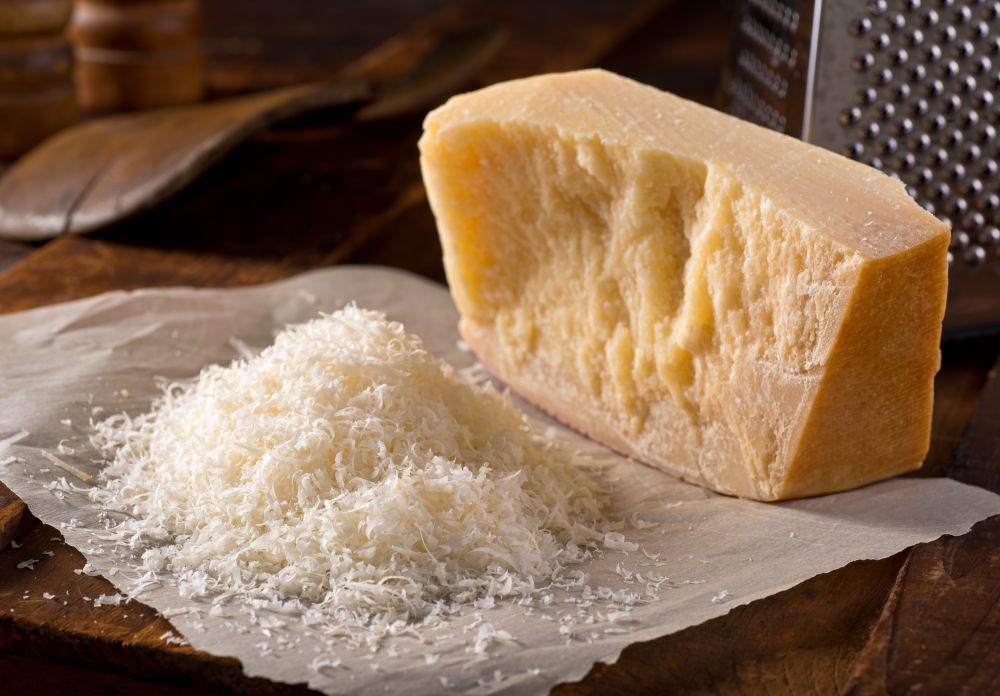Can You Freeze Cheese? Here’s the Right Way to Do This
We personally do not know anyone who does not love cheese unless they have dietary issues. However, we sometimes have the tendency to buy too much cheese when we find it on sale. Those supermarket sales are our best friends and biggest enemies at the same time. Nonetheless, we can probably save all the extras you’re not eating by freezing them.
So, can we freeze cheese? Will that work? Is it something we can do to make sure we do not waste money?
Can You Freeze Cheese?
We’re not the only ones buying too much cheese. Here’s the message we received from one of our readers:
I like to buy foods in bulk when they’re on sale. I’m worried that if I buy cheese in bulk it might go bad. Is it possible to freeze cheese?
Cheese can be frozen, but some cheeses freeze better than others.
Block cheeses such as cheddar, provolone, Swiss, or Monterey Jack freeze well because they are solid and have a low moisture content.
Aged cheeses such as Parmesan, Asiago, or Pecorino freeze well. Freezing these cheeses has the advantage of preventing mold from growing and helps to preserve their flavor. These cheeses freeze best in small pieces or when grated.
Soft cheeses are more difficult to freeze because of their high moisture content, although cream cheese freezes well.
How to Freeze Block Cheese?
As mentioned, if we’re talking about block cheeses like cheddar, provolone, Monterey Jack, or Swiss, you can freeze them quite easily. Here’s what you have to do:
- First, wrap tightly in plastic wrap.
- Next, place wrapped cheese in a small freezer bag and press out as much air from the bag as possible before sealing.
These types of cheese can be safely frozen for up to two months.
How to Thaw Block Cheese?
When thawed, even block cheese can lose some of their original texture, and may no longer be great for serving sliced.
Instead, reserve these cheeses for recipes that call for shredded or melted cheese so that any changes in texture won’t be noticed, like soups, nachos, or grilled cheese sandwiches.
How to Freeze Aged Cheese?
If you’re a fan of aged cheese assortments like Parmesan, Asiago, or Pecorino, you should know they are best frozen in small pieces or grated. While grated cheese can be used directly from the freezer, larger pieces need to be thawed before use.
Here’s what you have to do:
- Wrap tightly in plastic wrap and place in a freezer bag, or place grated cheese in a freezer-safe airtight container.
- These cheeses can be frozen for up to 3 months, and are best used in recipes as their texture may change when thawed.
How to Thaw Aged Cheese?
In order to thaw your aged cheese assortments, you need to go through just a few steps:
- Move the container of aged cheese into the fridge.
- Allow it a few hours before using or consuming it.
How to Freeze Soft Cheeses?
Softer assortments of cheese are more difficult to freeze, although cream cheese reacts well.
Here’s what you have to do to freeze these:
- Place in a freezer-safe airtight container.
- That’s it. Make sure the seal is perfect.
How to Thaw Soft Cheeses?
In order to defrost your soft cheese assortments, you need to set them the bag or container in the fridge.
- After thawing, you may notice some separation.
- If this happens, simply mix or whip until combines and the original texture is restored.
Other soft cheeses may lose their texture, as the high water content can cause ice crystals to form in the cheese when frozen. While ice crystals don’t make the cheese inedible, it can make it watery upon defrosting.
The change in texture isn’t unsafe, but soft cheese that’s been frozen is best usedmelted in recipes.
How to Keep Cheese Better in the Freezer?
If you want to make sure that any type of cheese keeps for longer in the freezer you can go ahead and use a food saver. These appliances suck out all the air in the containers or the freezer bags, creating a perfect seal.
Our favorite is the FoodSaver V4840 2-in-1 Vacuum Sealer Machine which works with all sorts of containers. It will save you money and time in the long run.






